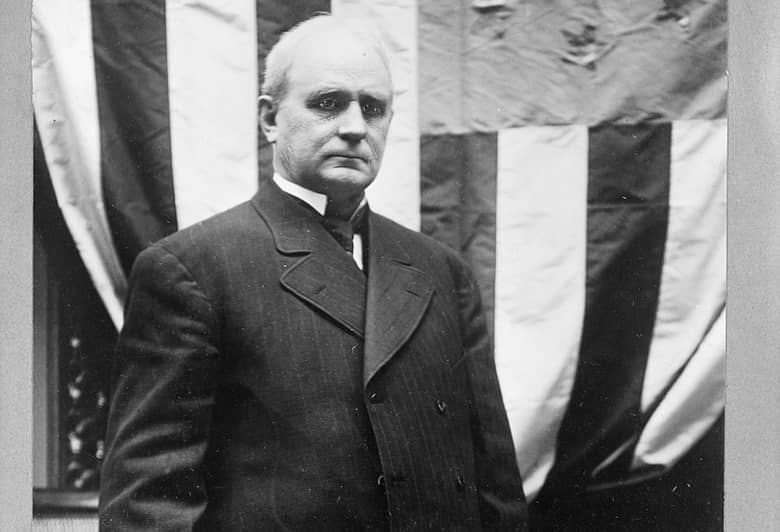
PIKE COUNTY, Mo. — Few were better at giving a rousing speech than Champ Clark, and he offered one in September 1911 that still has relevance.
The Bowling Green attorney had taken over just five months earlier as the 36th Speaker of the U.S. House of Representatives, and was proud of accomplishments he’d overseen or initiatives that had started in what would become almost eight years of wielding the gavel.
But Clark came home to Pike County troubled by a concern that’s often voiced today. At a chicken dinner in Louisiana, he outlined his fear that too many people ignored important matters facing the country.
“Instead of there being too many politicians, there are not enough,” he boldly said. “In a country whose institutions are based upon popular suffrage, every man should be a politician, and every man owes a portion of his time, energy and talents to the service of the state.”
Clark quickly told the audience that he did not mean everyone should seek political office, which he called a business that was “poor when you succeed” and “inexpressibly poor when you fail.”
“What I do mean is that every citizen should, so far as in him lies, study the problems which confront us, and help, so far as he can, to solve them for the betterment of government, the improvement of society and the perpetuity of the republic.”
The 1910 elections were a turning point in Washington. While Republicans maintained a majority in the Senate, Democrats took control of the House for the first time in almost two decades, and Clark helped make it happen. His message that families were being hurt by the high cost of living resonated with voters.
Clark pointed out that Congress had cut government expenses, reduced taxes and overhauled campaign finances. New Mexico and Arizona had been added to the Union, and work was under way on a constitutional amendment to have senators chosen by voters instead of state legislatures.
Clark said the Democrat House had “made a record so excellent as to surprise its friends and dumfound its enemies.”
The Editorial Review magazine said that under Clark’s leadership, Democrats were “again recognized and known as the constructive party, the party that builds and makes and does.”
Clark certainly could be partisan, but he also saw the need for cooperation across the aisle. While agreeing there was corruption in politics, he said such hacks were “enemies, not only of the republic, but all constituted authority” and that they “should be scourged out of public life with a whip of scorpions.”
Instead of focusing upon the rare cases of fraud, Clark said, people should be reminded that “our theory of government is the best ever devised by the wit of man; that the vast majority of American voters of all parties are absolutely honest, that the majority of public men are of high character and patriotic; that the corruptionists are only the exceptions which prove the rule.”
Ever the optimist, Clark re-emphasized the need for more people to get involved and make a difference.
“It is a great and glorious privilege to be a Missourian, but the greatest and most glorious privilege vouchsafed to us is to be Americans, with all the proud recollections, fond hopes and high aspirations of Americans.”